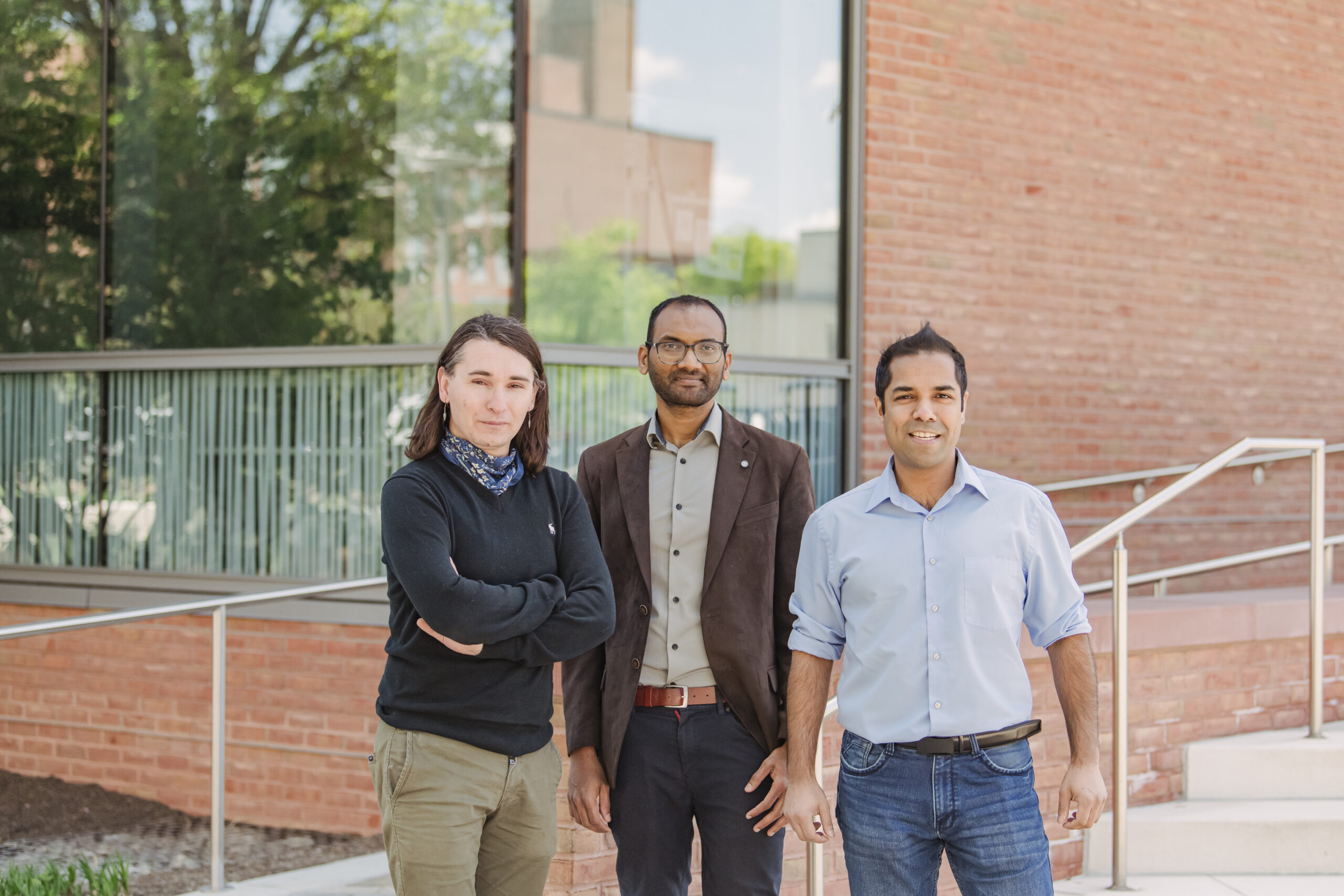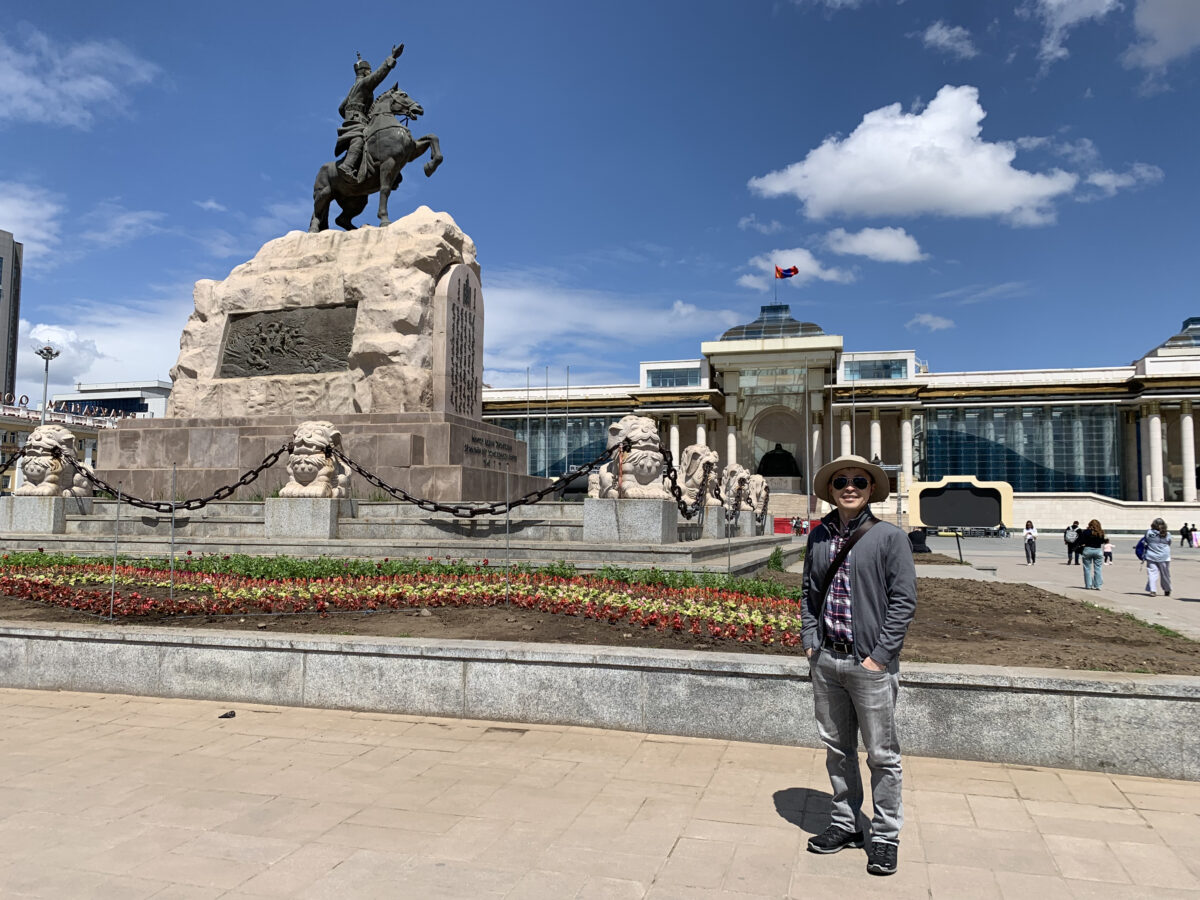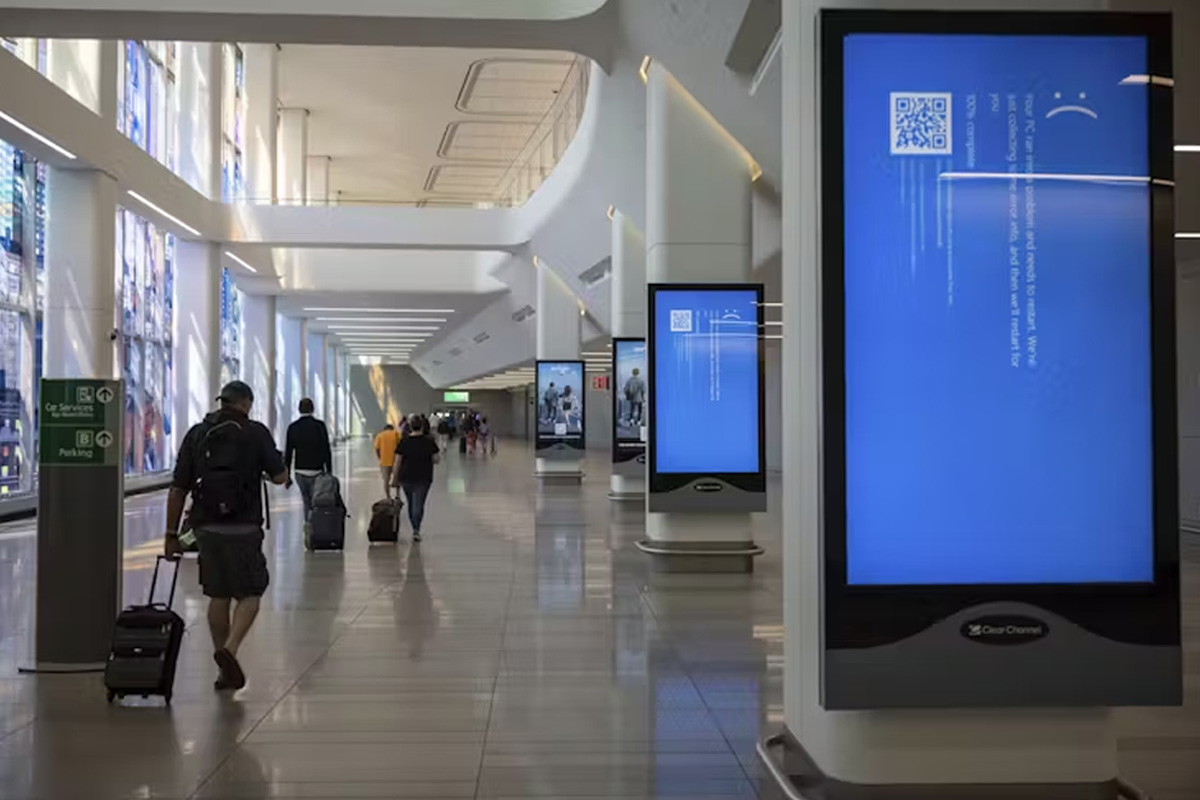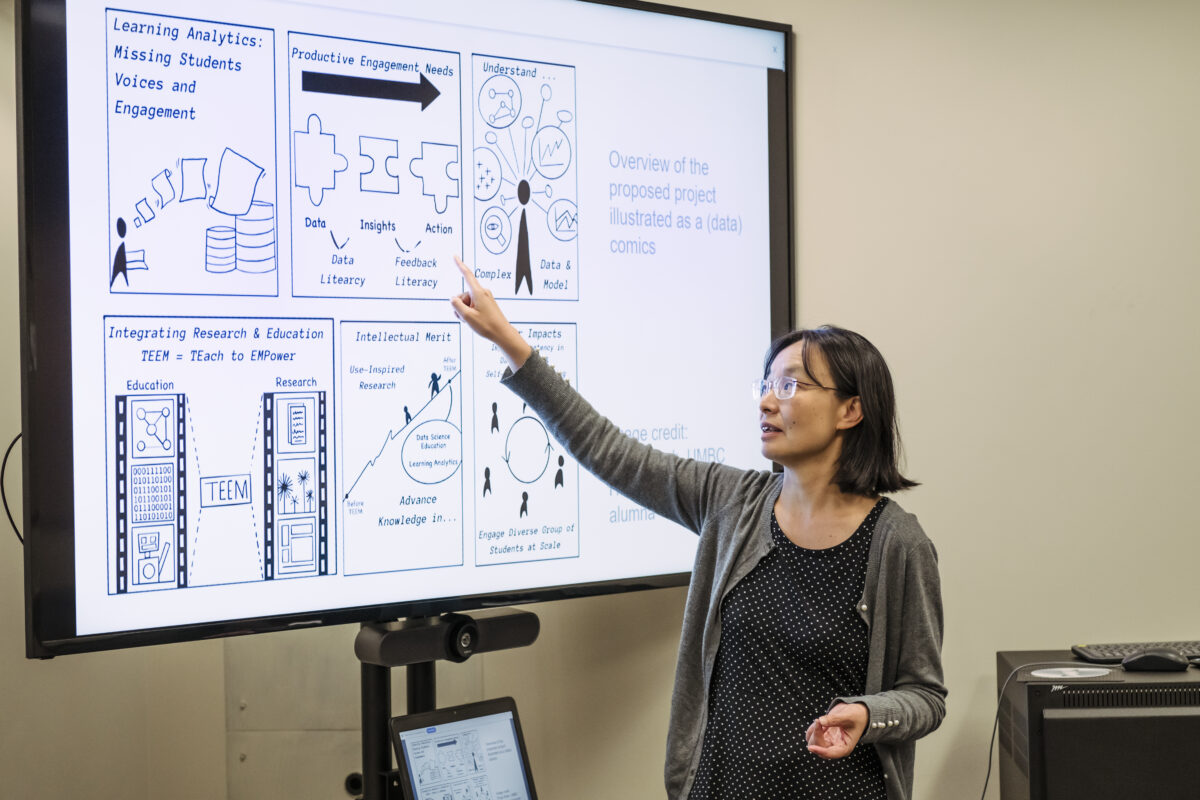This April 22, as the campus community celebrated Earth Day, the feel of spring’s natural reawakening was in the air. Birds chirped from newly leafed trees and students strolled in the bright sunshine. But the pleasant day belied a concerning trend: In Maryland and beyond, the balance of Earth’s life-supporting systems is shifting, driven in large part by the heat-trapping greenhouse gasses we humans send into the atmosphere. The Earth is getting hotter; weather patterns are changing; and ecosystems are under stress.
“Climate change is pressing us to adopt a more Earth-friendly lifestyle, to develop renewable energy,” says Özgür Çapraz, an associate professor in the department of chemical, biochemical, and environmental engineering at UMBC, who studies advanced battery technologies. Çapraz, who joined UMBC in fall 2023 from a faculty position at Oklahoma State University, was one of three recent faculty hires in the College of Engineering and Information Technology (COEIT) who all specialize in different aspects of sustainability and renewable energy-related research.
The three hires were part of a COEIT effort to build off recognized strength in the environmental domain, while expanding expertise in important areas such as energy, says Lee Blaney, a professor in the department of chemical, biochemical, and environmental engineering who chaired the search.
The other two hires are Alok Ghanekar, an assistant professor in mechanical engineering, who studies materials that can improve some solar energy harvesting systems, turn waste heat into electricity, and better cool buildings; and Rajasekhar Anguluri, an assistant professor in computer science and electrical engineering, who specializes in the math describing large, complex systems such as the power grid.
The energy conundrum
“Ever since I studied science in high school, I have been interested in energy,” says Ghanekar, who was a postdoctoral researcher at the University of Southern California prior to joining UMBC this spring semester. “Growing up in India, there were regular power outages every week. It is less of a problem now, but energy demand is still growing.”
Across the world, in many ways, energy consumption drives progress and improves people’s lives. But the burning of fossil fuels to produce much of that energy is increasing the concentration of heat-trapping gasses in the atmosphere. While the exact consequences of this change are uncertain, it’s clear the Earth is warming, and that trend is likely to put extreme pressures on societies in the decades to come.
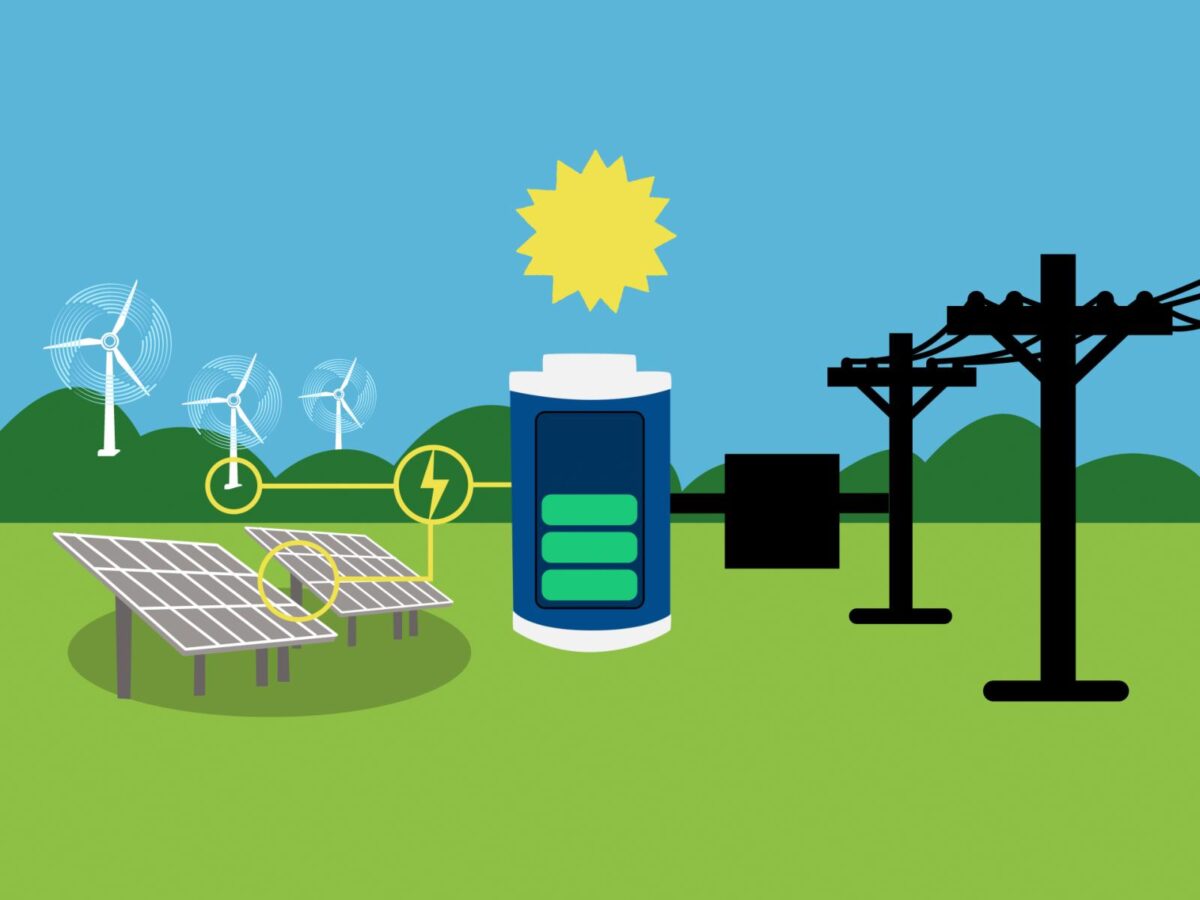
A big shift toward clean and renewable sources of energy could be part of the solution. Each of the new hires’ research touches this goal in some ways. In Ghanekar’s case, he studies human-designed materials called metamaterials that, among other potential uses, might one day help significantly increase the amount of energy from the sun that we are able to efficiently turn into electricity.
Getting more energy from the sun could help reduce greenhouse gas emissions, but since the sun doesn’t always shine, we also need ways to store that energy (perhaps with new battery technologies, the expertise of Çapraz) and ways to share that energy on the power grid without disrupting its delicate balance (a challenge that Anguluri has explored).
As academic researchers, they operate at the frontiers of knowledge, asking and seeking to answer fundamental questions that could push the technology forward: How exactly do batteries with new chemistries work, for example, or why does a material degrade over time? Anguluri’s math expertise spans a range of engineering disciplines. He and Ghanekar have already talked about collaborating to mathematically model the behavior of Ghanekar’s metamaterials.
No scientific “Eureka!” moment or technical advance by itself is likely to be a panacea to a problem as complex as global warming, but these incremental steps do offer people more tools.
“As scholars, we like to think, to solve interesting problems,” says Anguluri, who was a postdoc at Arizona State University before arriving at UMBC this year. “As citizens of the world, we must also look at our values and make wise choices.”
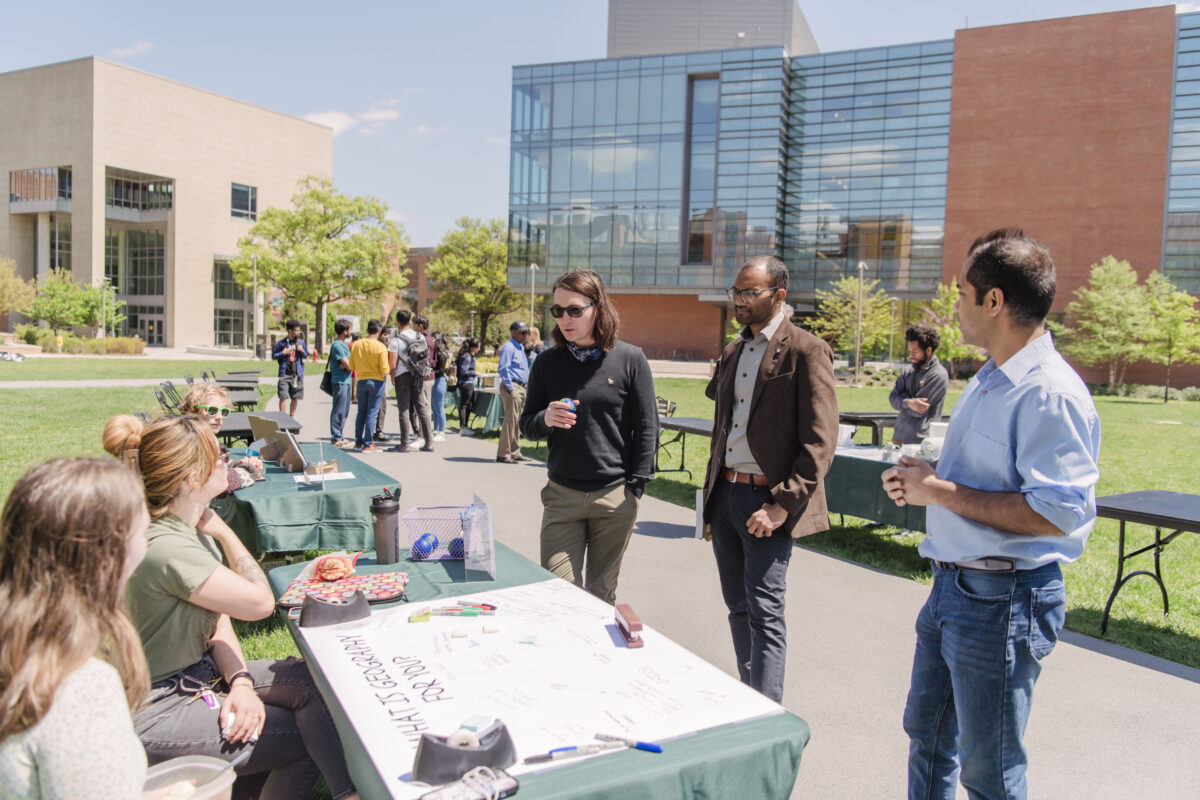
Building on a long-standing commitment
Studying people’s impact on the Earth, and working to mitigate environmental harms, is nothing new for researchers at UMBC.
The university boasts multiple research centers that advance environmental research, from the Center for Urban Environmental Research and Education to the Institute for Harnessing Data and Model Revolution in the Polar Regions. The university also has long-standing partnerships with NASA to develop new technology for environmental remote sensing.
Çapraz, Ghanekar, and Anguluri will join faculty at the university who study sustainable aquaculture, wildfire smoke, water and sediment pollution, fusion energy, and more.
“Sustainability research is an area of strength in COEIT,” says Vandana Janeja, the associate dean for research and faculty development in COEIT. “Now there’s a new sense of urgency about it and our recent hires are a testament to that.”
“Climate change is an issue that so many of our students are tapped into,” adds Blaney. “They’re really worried about the impacts of climate change and want to do something to address this global challenge.”
As the new UMBC faculty launch research projects and expand their labs, there will be growing opportunities for interested students to learn about and join their important work. And that’s good news, because as the Earth Day festivities on campus showcased, safeguarding our shared home is a duty shared by all of us.

